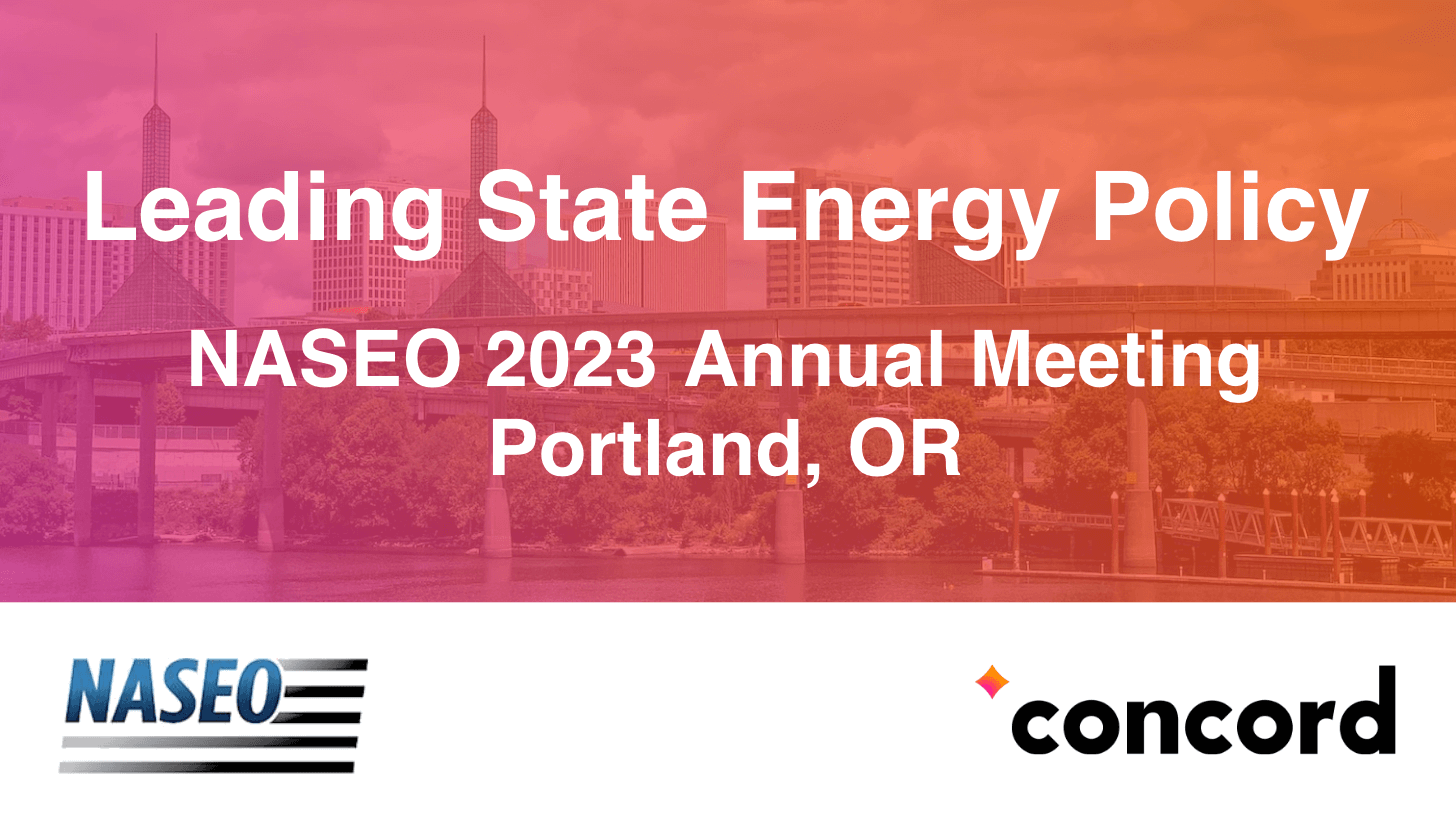3 Key Takeaways from the NASEO Annual Meeting
Read Time 3 mins | Written by: Tom Myers

THREE KEY TAKEAWAYS FROM THE NASEO ANNUAL MEETING
States and businesses are accelerating decarbonization initiatives in every sector of the economy – but they’ll need funding to scale for growth.
At the recent National Association of State Energy Officials (NASEO) annual meeting in Portland, one thing was clear: policy leaders and their private sector partners are poised for unprecedented growth in the deployment of clean energy solutions. Concord was proud to join in the conversation as policymakers discussed clean energy innovation, resilience, and affordability. Here are our three key takeaways from the event:
Public and private partnerships are required for successFederal and state dollars are now more available than ever, offering greater flexibility to scale clean energy projects. Historically, state energy officials have been great influencers to utilities, consumers and regulators on policy and funding for clean and equitable energy programs. But as federal dollars have increased, the states’ role begins to shift from influencer to implementor/contributor.
The Infrastructure Investment and Jobs Act (IIJA) was the first step in the process, driving increased availability of revolving loan funds. Today, there’s a significant opportunity to leverage those dollars in the private capital markets, both to mitigate risk for the private sector and to help the public sector scale clean energy. These funds are now just starting to be deployed, nearly two years after the IIJA was passed.
Green banks represent a growing opportunity for fundingMore recently, the Inflation Reduction Act (IRA) has significantly surpassed IIJA funding. This creates an interesting opportunity for states to start and/or support green banks, which leverage both public and private capital to drive clean energy adoption. Although green bank funding can be distributed in many ways, the broader question is whether those funds can be deployed with synergy and scalability.
This is a question the industry has yet to answer, but we believe that Concord can play a significant role in the green bank space. As a back-office service provider to both states and their allies (Community Development Financial Institutions, nonprofits and government agencies), we can provide critical support for organizations that do not have third-party loan servicing capabilities. This offers an even greater opportunity for the private sector to leverage these dollars to mitigate risk and achieve a potential 20-to-1 leverage ratio through a Loan Loss Reserve (LLR) fund. A large concentration of these funds will center on low- and moderate-Income (LMI) sectors.
Both implementers and consumers need financing to fund projectsUtilities still play a big role in the clean energy economy, as they are mostly regulated by local and state governments for the delivery of energy savings and LMI programs. We see a big opportunity for Concord to partner with program implementors as well as niche programs to add on financing as a way to create a higher conversion ratio of project opportunities to project completions. Alongside rate payer funds in addition to state and federal funding, service providers like Concord are needed to help scale an equitable clean energy economy.
Looking for a loan servicing partner?
If you’re looking for a loan servicer that can scale to meet your clean energy growth goals, Concord has the expertise to manage every aspect of your loan operations. As a leading solar loan servicer with more than 30 years of experience, we deliver compliant, flexible, and scalable solutions to meet your unique needs. Contact us today at (866) 493-6393 or bd@concordservicing.com.